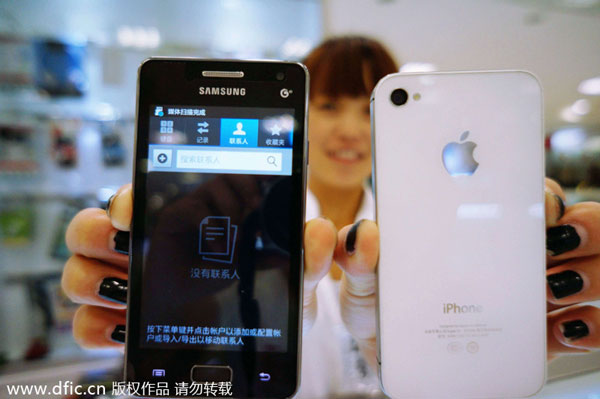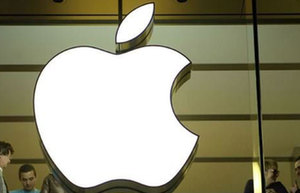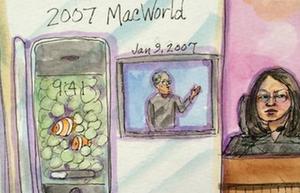|
 |
|
A sales woman displays a Samsung?smartphone and an?iPhone in a electronics store in Hangzhou, Zhejiang province. [File photo/dfic.cn] |
The second round of a raging patent war between the world's top two technology companies, Samsung Electronics and Apple Inc, resumed in a US court in California on Monday.
This time, Google's Android mobile operation system has come into the spotlight, with a celebrated former Google executive ― Andy Rubin, who oversaw the development of the Android operating system ― expected to step up as a witness for both Samsung and Apple.
What a coincidence.
Two battling companies calling in the same witness.
This is all because Apple's real target is Google's Android, the only worthy rival to the iOS.
Apple ― which claims Samsung has infringed upon its technology in several ways ― is actually using Samsung as a proxy in its bigger plan to sabotage Google and its Android once and for all, according to many sources.
"The ultimate goal of Apple is to break off the alliance between Google and Android-based smartphone makers," said Jung Woo-sung, a patent lawyer and author of "War on Patent."
If Apple wins, other Andriod-based handset makers may have to use other technologies or pay royalties to Apple.
"Apple wants them to turn to Windows Mobile of Microsoft, which has a good relationship with Apple," he added. Jung cited the case when Apple chose to quickly succumb to Nokia, which uses Windows Mobile.
Therefore, it would be an understatement to say that the outcome will be significant for other Android device makers such as HTC, Motorola or LG Electronics, which may want to avoid similar lawsuits.
Samsung, meanwhile, also called Google engineers to claim that the technologies were developed prior to Apple's application for the patents.
Hiroshi Lockheimer, the vice-president of Android engineering, along with other Google engineers, is listed as a possible witness.
The patents Apple claims ― background syncing of data, the universal search used by Siri, sliding to unlock the phone and word completion ― are applied to all Android-based phones.
Samsung has reduced the number of patents that it claims Apple has infringed on to two commercial patents.
The Korean tech giant, refusing to elaborate on whether it is aware of Apple's ulterior motives, said it had streamlined its accusations for "strategic, legal" reasons.
Other differences between Samsung and Apple include the damages.
While Apple is seeking $2 billion in damages, Samsung is only seeking US$22 million.
To sum up, if accusations of copying phone design were at the center of the first round of this internationally watched trial, the second round has become more cutthroat, as it is no longer a battle between Samsung and Apple.
Apple is out for something bigger, and it seems ready to do everything in its power to make sure it emerges as the ultimate winner.
And for this reason, it is most likely that this second round will be no less lengthy than the first.
|
 |
 |
| Apple Inc sues China on IP | Apple seeks decisive US court ruling against Samsung |
